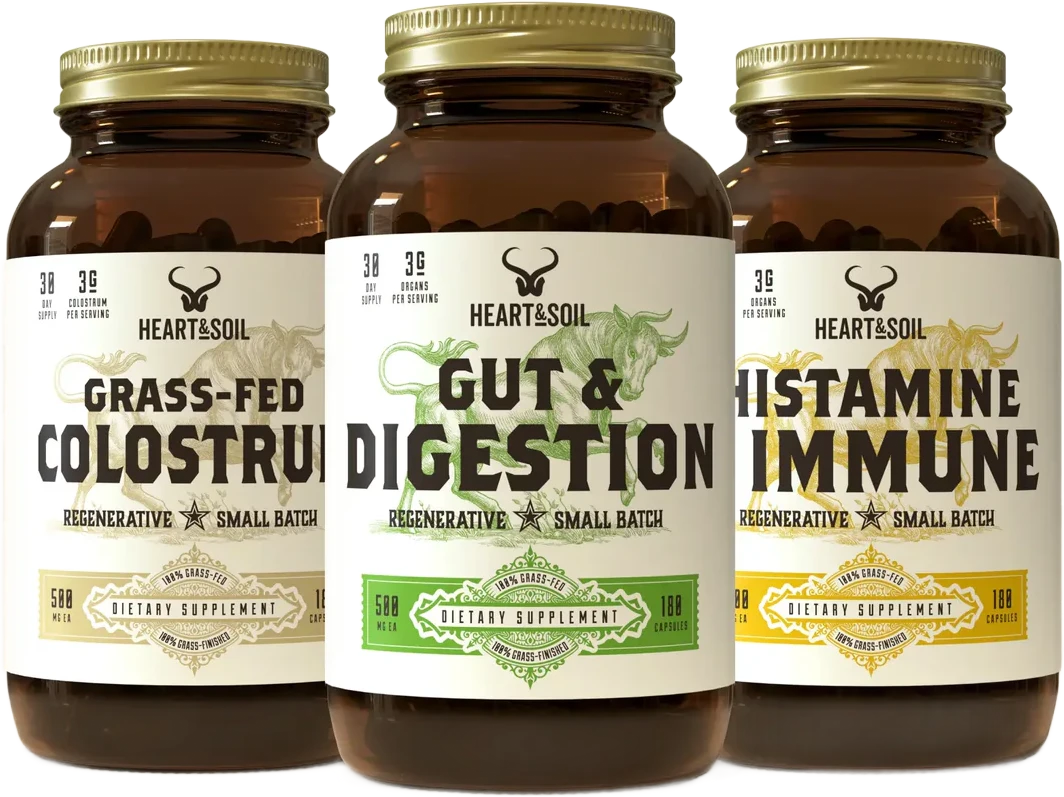PLEASE NOTE: The information in this blog is for educational purposes only. It is not a substitute for professional medical advice. Consult your healthcare provider if you’re seeking medical advice, diagnoses, or treatment.
Grains have long been promoted as a cornerstone of a healthy diet, with the USDA food pyramid recommending 6-11 servings daily. But what if this so-called “staple” quietly contributes to fatigue, bloating, and brain fog?
As more people question the role of grains in their diet, it’s time to look beyond the food pyramid and into the actual science.
Are grains bad for you? Let’s uncover what the evidence says so you can make the best decision for your health.
What are Grains?
Grains are the edible seeds of certain plants. Common grains include wheat, oats, corn, barley, quinoa, buckwheat, millet, and rice. Whole grains contain the bran, germ, and endosperm, while refined grains have had the bran and germ removed.
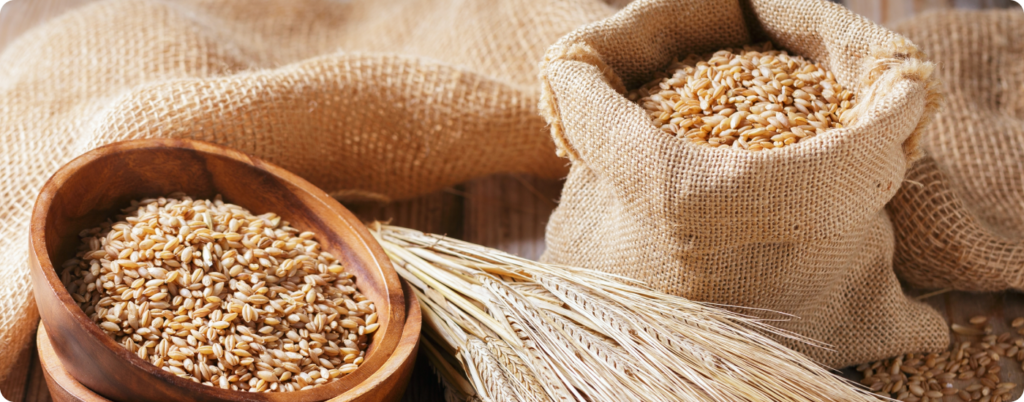
A Brief History of Grain Consumption
Humans have been consuming wild grains for hundreds of thousands of years (1). However, full-scale cultivation of grains didn’t begin until about 12,000 years ago with the onset of agriculture. By 5,000 BC, farming was practiced on almost every continent, profoundly changing human nutrition by making grains a dietary staple.
Modern grains, however, bear little resemblance to their ancient ancestors. The mid-1900s “Green Revolution” dramatically altered the global wheat supply by introducing chemical pesticides and genetic modification (2). These changes were designed to increase yields, shelf stability, and resistance to pests and drought, but they may have also introduced new health concerns.
5 Ways Grains May Harm Your Health
Science has uncovered several reasons why grains may be doing more harm than good, especially the grains of today, which are heavily processed, genetically modified, and chemically treated. Are grains bad for you? Let’s dive into 4 ways grains may undermine your health:
1. Digestive Stress
Grain proteins like glutenins and gliadins are difficult for your body to break down (3). They can stimulate zonulin, a protein that disrupts gut barrier integrity (4). This can cause “leaky gut” in some, by opening the pathway in the digestive tract for unwanted particles and toxins to enter the bloodstream, which can trigger immune responses and inflammation (5).
2. Immune Activation
Other grain proteins, such as prolamins and glutelins, can provoke immune responses even in individuals without diagnosed autoimmune diseases like celiac disease (6). Over time, this can lead to chronic, low-grade inflammation and autoimmune aggravation. Symptoms often include joint pain, brain fog, fatigue, and skin flare-ups. (7, 8)
3. Impaired Nutrient Absorption
Grains contain plant defense compounds known as antinutrients like phytic acid and lectins. These naturally occurring substances can bind to essential minerals like zinc, iron, calcium, and magnesium, making them harder for your body to absorb (9).
In a strict plant-based diet, these nutrient deficiencies can lead to fatigue, low immunity, poor skin health, or hormonal imbalances (10).
4. Contact with Chemicals
Non-organic grain crops, particularly wheat, oats, and corn, are frequently treated with the herbicide glyphosate. Glyphosate is not only used during the growing season to manage weeds but is also commonly applied as a pre-harvest desiccant to speed up drying and increase yield uniformity (11). These practices can lead to significant glyphosate residues in many products on the shelves at your local grocery store (12).
The International Agency for Research on Cancer has classified glyphosate as a “probable human carcinogen,” raising serious concerns about its long-term impact on health (13). Beyond its carcinogenic potential, glyphosate has been shown to interfere with hormone function and alter gut microbiota composition (14).
5. Exposure to Mycotoxins
Many grains also carry a significant risk of mycotoxin contamination, which occurs when certain molds grow on crops during harvesting, storage, or transport. Their toxic byproducts, known as mycotoxins, can harm multiple body systems and are a major concern for human health (15, 16). Alarmingly, many of these compounds are heat-stable, meaning they can survive baking, boiling, and other food processing methods (17).
Should You Avoid Grains?
While many people tolerate grains without issues, others may benefit greatly from reducing or eliminating them, especially if they’re struggling with:
For individuals sensitive to certain grains or gluten, going grain-free may help support better gut health, inflammation reduction, and skin health. It’s important to listen to your body and work with a healthcare provider to find what works best for you.
What About Soaking and Sprouting Grains?
Soaking and sprouting are traditional preparation techniques often used to reduce antinutrients like saponins and phytic acid, while slightly improving the bioavailability of minerals and nutrients (21, 22).
These processes can make grains somewhat more digestible and may be tolerated in small amounts by some healthy individuals. However, in the context of an animal-based diet, which prioritizes the most nutrient-dense and bioavailable foods, even these “upgraded” grains don’t compare.
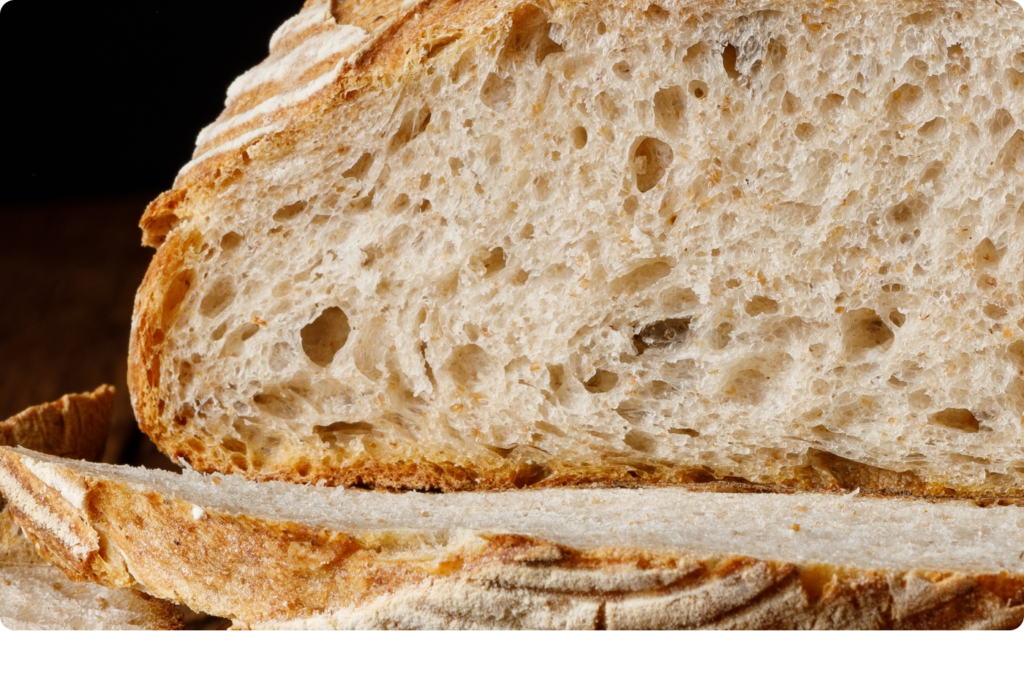
What About Sourdough?
Are grains bad for you, even if they’re fermented? The fermenting of wheat to make sourdough dates back to ancient Egypt, around 2,000 BC (23). Long fermentation with wild lactobacilli can improve digestibility and mineral content (24). One study showed that individuals with gluten intolerance did not experience increased intestinal permeability after consuming long-fermented sourdough bread (25).
That said, even properly fermented grains still fail to deliver the dense nutrition, digestibility, and anti-inflammatory benefits of animal-based foods. While a slice of traditional sourdough may be a better option than industrial wheat products, it’s not a part of an animal-based diet.
What About Rice?
Among grains, white rice is often considered the most tolerable. This is mainly because removing its bran during processing significantly reduces levels of antinutrients like phytic acid and lectins, which can impair mineral absorption and irritate the gut lining. For this reason, many in the animal-based community choose white rice over brown rice.
Still, rice can absorb arsenic and other heavy metals from the soil, especially when grown in contaminated or waterlogged conditions (26). These toxins accumulate most heavily in the outer layers, which is why white rice can contain up to 80% less arsenic than brown rice (27).
If you do choose to include rice in your diet, it’s best to…
- Opt for organic white rice
- Rinse the rice to help reduce surface contaminants (28, 29)
- Soak the rice to lower phytate levels (30)
Even then, we suggest prioritizing carbohydrates that are richer in nutrients, like fruit, honey, sweet potatoes, and squash, which support metabolic health.
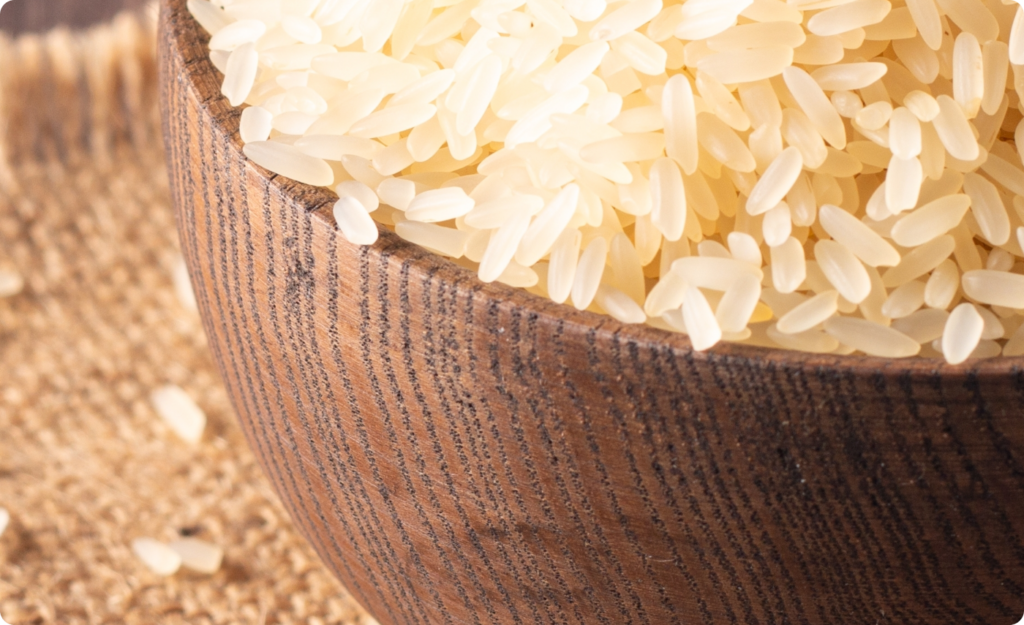
A Better Diet for a Healthy Gut
Rather than relying on plant foods that can impair digestion and promote inflammation, the animal-based diet centers around bioavailable, nutrient-dense foods. It’s the most ancestrally consistent way of eating for humans.
Here’s what the animal-based diet includes:
- Grass-fed red meat: High in heme iron, B vitamins, zinc, and complete proteins
- Organ meats: Rich in vitamin A, copper, and CoQ10–nature’s “multivitamin”
- Raw dairy: Supplies calcium, bioavailable protein, and healthy saturated fats
- Organic fruit and honey: Metabolically supportive carbs that fuel thyroid and energy production
- Bone broth and gelatin: Provide glycine and collagen to support the gut, joints, and sleep
This combination of nourishing foods can help restore gut balance and overall vitality in a way that processed grains often won’t.
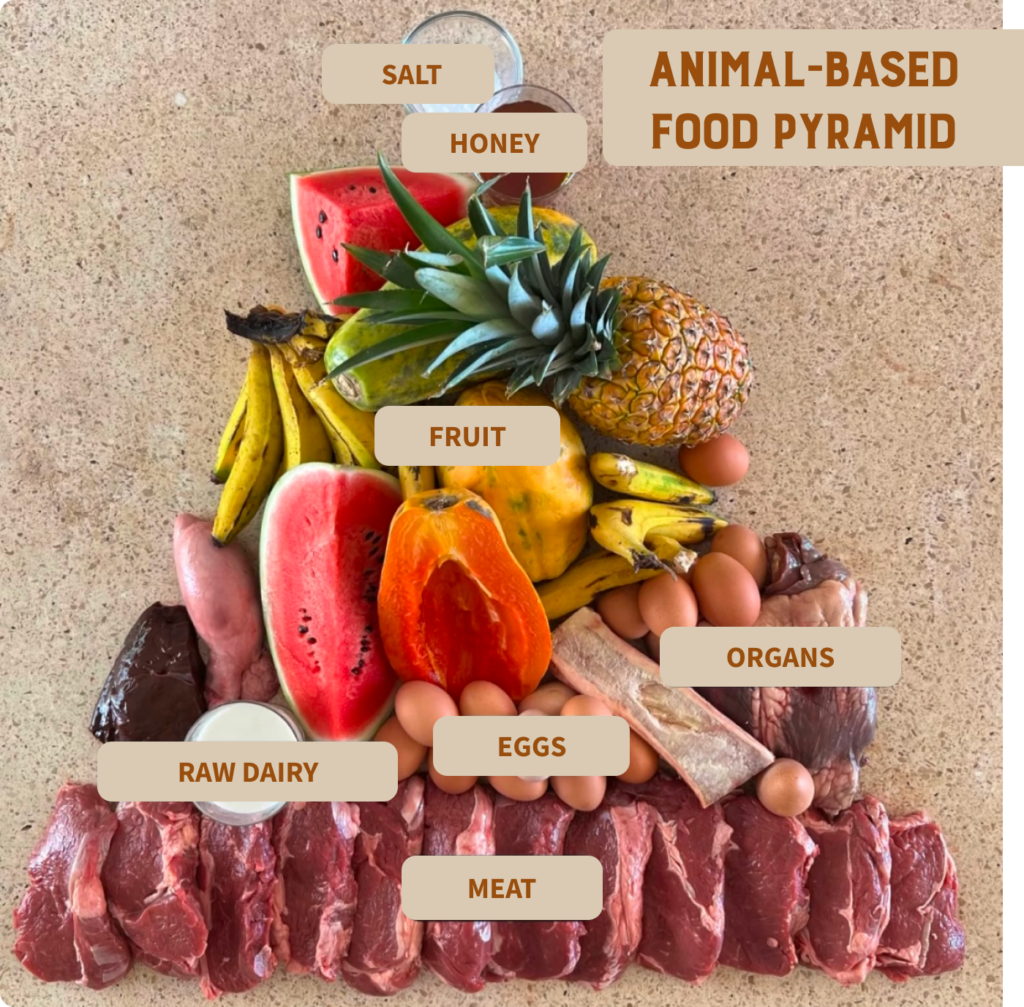
Are Grains Bad for You? The Bottom Line
Grains aren’t inherently “bad,” but they are far from essential in the human diet, and many people feel better without them. Consider removing grains for 30 days and pay attention to your digestion, energy, and mental clarity. You might be surprised by the difference you feel!
A grain-free, animal-based approach centers around nutrient-dense whole foods that support your metabolism, immune system, and overall vitality in ways that grains often won’t. When done right, it provides everything you need to truly thrive.
Digestive Stack
Powerful Support for a Healthy Gut
Subscribe to future articles like this:
